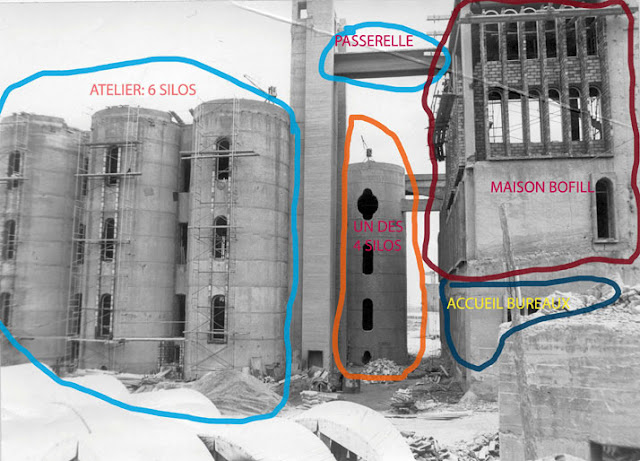Perto de Barcelona
esta antiga fábrica de cimento transformou-se na habitação e o atelier do
arquitecto Ricardo Bofill e da sua família.
Quando foi descoberta,
em 1973, era uma fabrica abandonada e parcialmente em ruínas, composta por mais
de 30 silos, galerias subterrâneas e salas de motor. Quando a adquiriu o
arquitecto decidiu que seria utilizada para escritórios de arquitectura,
arquivos, um laboratório modelo, espaço para exposições, um apartamento,
quartos e jardins.
Decorado com
poucos objectos decorativos e os que existem têm poucos pormenores, a estrutura
interior ganha mais relevo e importância.
Near
Barcelona this old cement factory became the home and workspace of architect Ricardo Bofill and his family.
When it was discovered in 1973, it was an abandoned factory and partly in ruins, consisting of more than 30 silos, tunnels and engine rooms. When purchased the architect decided that would be used for architectural offices, archives, a laboratory model, exhibit space, an apartment, rooms and gardens.
Decorated with a few decorative objects and those that exist have few details, the interior structure gains more relevance and importance.
When it was discovered in 1973, it was an abandoned factory and partly in ruins, consisting of more than 30 silos, tunnels and engine rooms. When purchased the architect decided that would be used for architectural offices, archives, a laboratory model, exhibit space, an apartment, rooms and gardens.
Decorated with a few decorative objects and those that exist have few details, the interior structure gains more relevance and importance.
No geral a Fábrica
de Cimento é um edifício de design exclusivo e elementos arquitectónicos únicos
e cheios de estilo. A mistura de texturas e formas, os enormes espaços, as
grandes janelas e a quantidade e qualidade de luz natural fazem com que este
espaço seja um lugar único para viver e trabalhar. Os jardins que unem estes
espaços tornam ainda mais este lugar mágico.
Overall, The Cement Factory is a building
with unique design and architectural elements. A mixture of textures and forms,
materials and impressions; the enormous spaces, the large arched windows and
the stunning quality of natural light throughout the day makes it a unique
place to live in and work in. The gardens linking these spaces make this place
even more magical.
“to be an architect means to
understand space, to understand space organized by man, to decipher the
spontaneous movements and behavior of people, and to detect the needs of change
that they might unconsciously express. It is essential to track down these
issues if we want to contribute with our personal work to the history of
architecture.” Ricardo
Bofill
Imagens:http://www.ricardobofill.com/



















Enviar um comentário